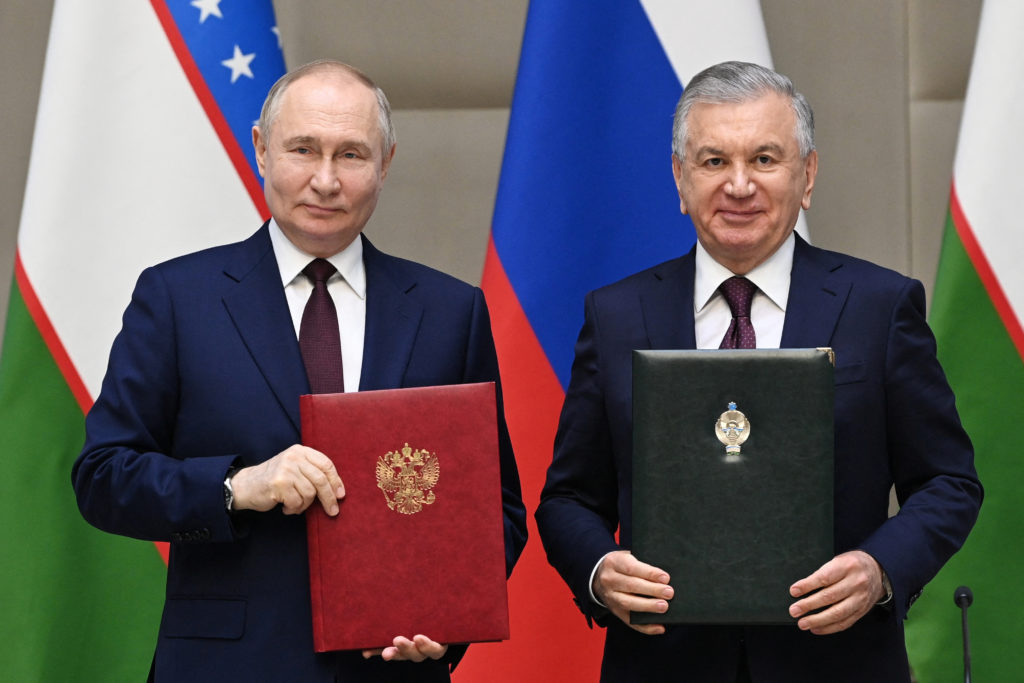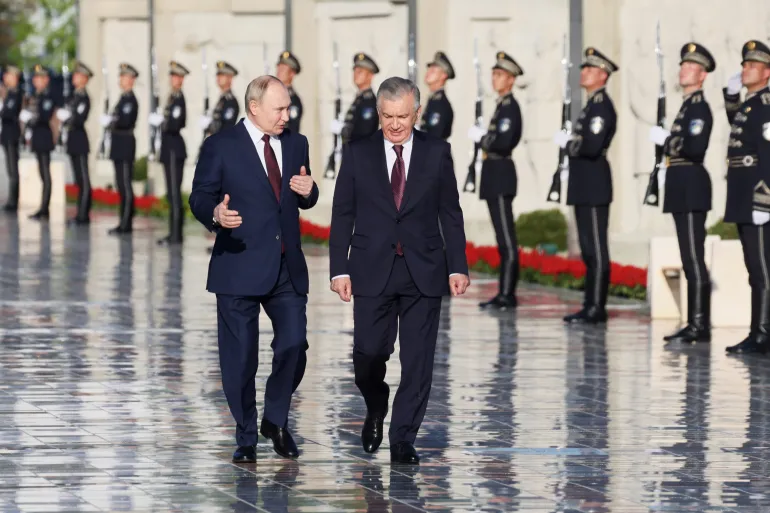A Major Energy Development
Russia is set to embark on a significant project: building a Russia’s Nuclear Power plant in Uzbekistan. This development marks a major step in Uzbekistan’s energy strategy and highlights Russia’s expanding influence in Central Asia. The collaboration aims to address energy needs, boost economic growth, and strengthen ties between the two nations. In this blog, we’ll delve into the details of the project, its potential benefits, challenges, and the broader implications for the region.
Project Overview: Scope and Objectives
Firstly, the nuclear power plant project will be carried out by Russia’s state nuclear corporation, Rosatom. The agreement between Russia and Uzbekistan outlines the construction of a nuclear power plant comprising two VVER-1200 reactors. These reactors are advanced, third-generation units known for their safety features and efficiency. The plant is expected to generate a total capacity of 2.4 gigawatts, significantly enhancing Uzbekistan’s power supply.
The primary objective of this project is to diversify Uzbekistan’s energy sources and reduce its dependence on fossil fuels. Currently, Uzbekistan relies heavily on natural gas for electricity generation. The introduction of nuclear power will provide a stable and sustainable energy source, helping to meet the growing demand for electricity as the country industrializes and its population increases.
Moreover, the project aims to bolster economic development. The construction and operation of the nuclear power plant will create jobs, foster technological advancements, and attract investments. This collaboration also underscores the strategic partnership between Russia and Uzbekistan, with both nations seeking to strengthen their economic and political ties.
Potential Benefits: Energy Security and Economic Growth
The construction of a nuclear power plant in Uzbekistan offers several potential benefits. Firstly, it will enhance energy security by providing a reliable and consistent power supply. Nuclear energy is known for its high capacity and low operating costs, making it a viable alternative to traditional fossil fuels. This stability is crucial for Uzbekistan, especially during periods of high demand or fluctuating natural gas prices.
Secondly, the project will contribute to Uzbekistan’s economic growth. The construction phase will create numerous jobs, from engineering and construction to maintenance and operations. Additionally, the project will stimulate the local economy by requiring services and materials from various sectors. Once operational, the plant will provide affordable electricity, reducing energy costs for businesses and consumers, thereby boosting industrial productivity and economic activity.
Furthermore, the collaboration with Rosatom will facilitate the transfer of nuclear technology and expertise to Uzbekistan. This knowledge exchange will enhance the country’s technical capabilities and contribute to the development of a skilled workforce. The partnership will also open opportunities for future cooperation in other high-tech industries.
Challenges and Concerns: Addressing Safety and Environmental Issues
Despite the potential benefits, the construction of a nuclear power plant also presents several challenges and concerns. One of the primary concerns is safety. Ensuring the safety of nuclear facilities is paramount to prevent accidents and protect public health. The Chernobyl and Fukushima disasters have highlighted the risks associated with nuclear power. Therefore, stringent safety measures, regular inspections, and robust regulatory frameworks are essential to mitigate these risks.
Rosatom’s VVER-1200 reactors are designed with advanced safety features, including multiple layers of defense, automated safety systems, and containment structures. These features are intended to prevent accidents and minimize the impact of any potential incidents. Additionally, international oversight and adherence to global nuclear safety standards will be crucial in ensuring the plant’s safe operation.
Environmental concerns also need to be addressed. While nuclear power generates low greenhouse gas emissions, it does produce radioactive waste. Proper waste management and disposal are critical to avoid environmental contamination. Uzbekistan will need to develop comprehensive waste management strategies, including secure storage facilities and long-term disposal solutions.
Furthermore, the project may face opposition from local communities and environmental groups. Public engagement and transparent communication are essential to address concerns, build trust, and gain support for the project. Informing the public about the safety measures, benefits, and environmental impact of the nuclear power plant will be key to its acceptance and success.

Broader Implications: Regional and Global Impact on Russia’s Nuclear Power
The construction of a nuclear power plant in Uzbekistan has broader implications for the region and beyond. Firstly, it signifies Russia’s growing influence in Central Asia. By investing in Uzbekistan’s energy infrastructure, Russia strengthens its strategic position and fosters closer economic ties with its neighbors. This move aligns with Russia’s broader geopolitical strategy of expanding its presence and influence in the region.
Additionally, the project highlights the increasing role of nuclear energy in global energy transitions. As countries seek to reduce carbon emissions and combat climate change, nuclear power offers a low-carbon alternative to fossil fuels. The Uzbekistan project may serve as a model for other developing countries looking to diversify their energy sources and enhance energy security.
Moreover, the collaboration between Russia and Uzbekistan could pave the way for further international partnerships in the nuclear sector. Other countries with emerging economies and growing energy needs may look to similar projects to meet their energy demands sustainably. This trend could lead to a more widespread adoption of nuclear energy, contributing to global efforts to achieve carbon neutrality.
A Pivotal Energy Project and Russia’s Nuclear Power
Russia’s plan to build a nuclear power plant in Uzbekistan represents a significant development in the region’s energy landscape. The project promises to enhance energy security, support economic growth, and strengthen bilateral ties between Russia and Uzbekistan. While challenges and concerns must be addressed, the potential benefits of the project are substantial.
As Uzbekistan embarks on this ambitious venture, the success of the nuclear power plant will depend on rigorous safety measures, effective waste management, and public support. The broader implications of this project highlight the growing importance of nuclear energy in addressing global energy challenges and advancing sustainable development.
This collaboration between Russia and Uzbekistan marks a pivotal moment in their strategic partnership and sets the stage for a future where nuclear power plays a key role in meeting the world’s energy needs.
Inspired by Al-Jazeera News and Rear More Articles Here. or Read Previous Articles Here.
